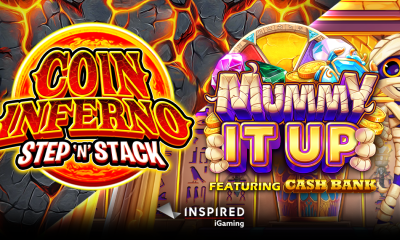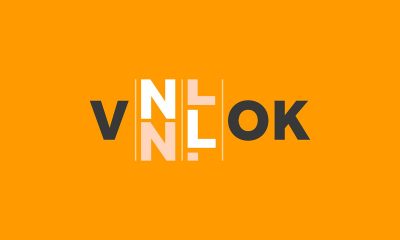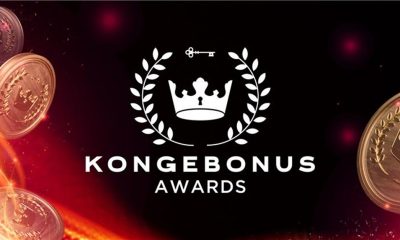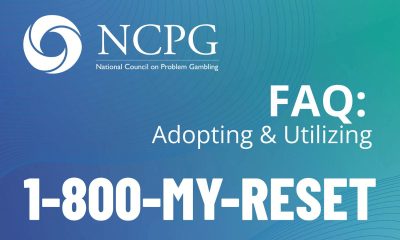Latest News
Future Anthem and Gamesys present new research into the impact of casino games on player markers of harm
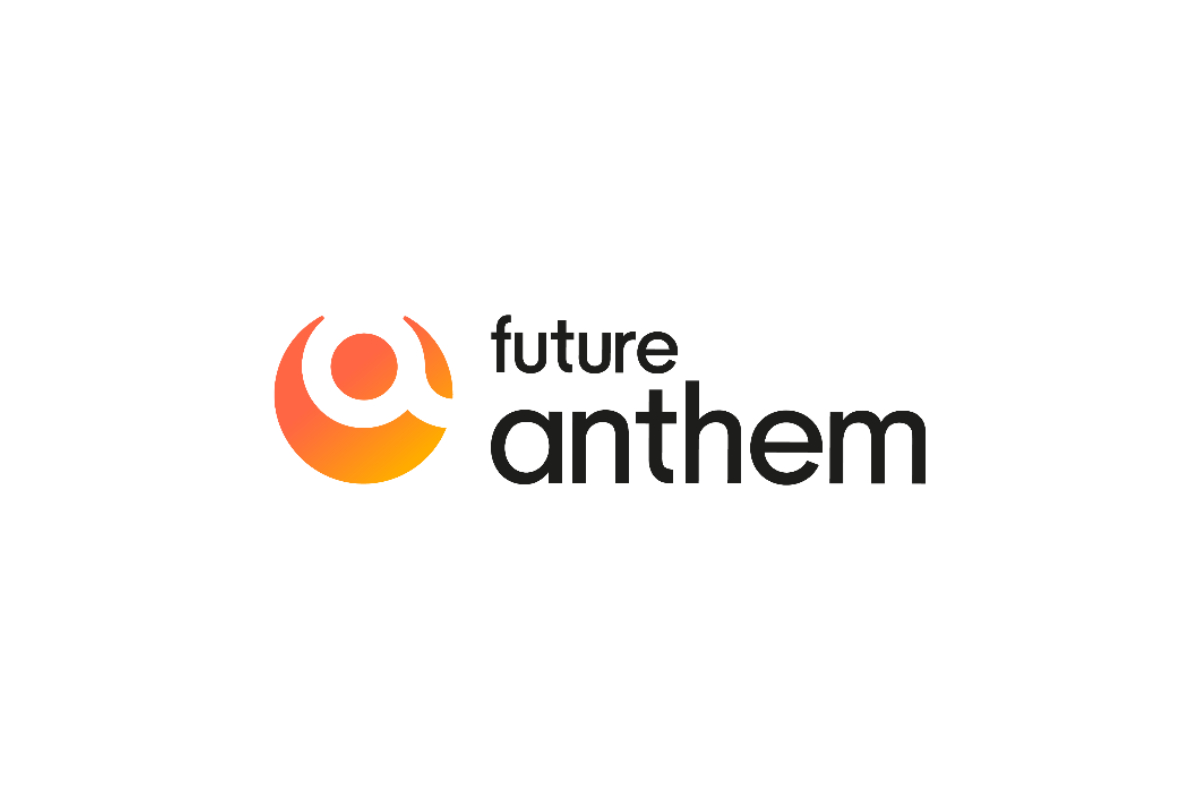
Modelling of 36 million gaming sessions finds no statistically significant correlation between player markers of harm and three structural game characteristics: Volatility; Return to Player (RTP); Hit Rate
Building on the foundations of a complementary responsible gambling assessment earlier in the year, Future Anthem and Gamesys (a Bally’s Corporation Company) have partnered to analyse the extent to which player markers of harm may be driven by the games that players choose to play.
Released to coincide with Safer Gambling Week (1-7 November 2021) – a cross-industry initiative to promote safer gambling in the United Kingdom and Ireland – this research has used Anthem’s Safer Play machine learning models which were executed against 36 million Gamesys gaming sessions to identify potential markers of harm that indicate risky play.
A full investigation of the extent to which slot games may be correlated with markers of harm was conducted on these game sessions to identify the link between player risk and the three structural game characteristics of volatility, return-to-player and hit rate.
The results
The results demonstrate no statistically significant correlation between player markers of harm and the experience that different games provide.
Analysis by Future Anthem – the pioneering AI and game data science specialist – indicates that these structural characteristics are not associated with behavioural markers of harm. Furthermore, there was no evidence that specific risk indicators, such as staking up, were linked to specific games within the category.
This is just the beginning of what will become a larger piece of research on game features, game design and markers of harm to understand the aspects of games that provide for a sustainable and enjoyable player experience.
Additional insights
Key factors of prominence in this research suggest that there are other learnings that can aid detecting risky play, including time of day, deviance from normal play patterns and recent classification of risky sessions.
Statistics found to support this include:
· Overnight play (12.00am-6.00am): 36% riskier than other times of the day
· Players were over 7x more likely to have another high-risk session than those that just had a safe session.
“We are delighted to have undertaken research in such an important area of our industry with Gamesys. Aspects of games, players, behaviours, and protection are often mythologised. We have deployed comprehensive machine learning models with significant amounts of data on gameplay to shine a light on part of the puzzle. We look forward to undertaking further research on games and game design to identify how gambling operators and studios can provide an enjoyable and sustainable player experience,” said Chris Conroy, Chief Data Officer, Future Anthem.
“As part of our ongoing commitment to player experience, we are proud to be part of a piece of research that better helps the gambling sector understand the link between markers of harm and the gaming experience. We always strive to build and operate games that are best suited to our players, with rigorous selection policies – this research is another milestone on our journey,” said Kevin Clegg, Director of Sustainability at Gamesys (a Bally’s Corporation company).
About this research
Future Anthem’s Safer Play product uses state of the art AI to proactively detect in-session wagering behaviours that indicate players may be exhibiting markers of harm, creating a score for every game session for every player (a game session being from game launch to game close).
Its machine learning models assess more than 80 separate metrics that correspond to markers of harm which have been honed across billions of spins to cluster game sessions together according to their level of risk.
For this specific research undertaken with Gamesys, 36 million gaming sessions were created, which involved 2+ billion spins, across 5 million hours of gameplay on 368 games, from more than 800,000 players.
Future Anthem believes this research is the first of its kind as most other research in this area understandably focuses on the player themselves. The Future Anthem team intends to continue its research in this area with additional focus on the relationships between games, features, design and their links to player-risk and experience.
Powered by WPeMatico
American gambling industry
Gaming Americas Weekly Roundup – January 26-February 1

Welcome to our weekly roundup of American gambling news again! Here, we are going through the weekly highlights of the American gambling industry which include the latest news and new partnerships. Read on and get updated.
Latest News
ComeOn Group has launched its new marketing campaign in Ontario. The campaign underscores ComeOn Group’s long-term commitment to sustainable expansion – powered by ComeOn’s proprietary technology and a clear focus on delivering standout, personalised entertainment experiences at scale. At the centre of the campaign is a series of premium television commercials starring Jeremy Piven, a long-standing ComeOn brand ambassador. Piven’s high-energy presence and authentic connection to sports reinforce the brand’s entertainment-first positioning, bringing ComeOn’s sportsbook experience to life across TV and digital. Produced by ComeOn Group’s internal creative hub, the campaign provides a cohesive creative platform that clearly differentiates the brand in a crowded market.
Michigan commercial and tribal operators have reported a combined $399.8 million total internet gaming (iGaming) gross receipts and gross sports betting receipts in December. Gross receipts increased 19.1% compared to November. December iGaming gross receipts totaled $315.8 million, the highest to date. The previous high was $278.5 million recorded in October 2025. December gross sports betting receipts totaled $84.0 million, which is a decrease from the $87.3 million recorded in November. Combined total iGaming and internet sports betting adjusted gross receipts (AGR) for December were $357.87 million, including $296.74 million from iGaming and $61.13 million from internet sports betting — representing an iGaming increase of 27.2% and a sports betting decrease of 5.6% when compared to November 2025.
The Cordish Companies and Bruce Smith Enterprise celebrated the highly-anticipated grand opening of Live! Casino Virginia, the region’s first full-scale casino. The opening of the temporary gaming facility marks an important milestone in bringing new jobs, economic development and tourism to the region while construction advances on the permanent resort destination next door. Located just 25 miles south of Richmond and only 45 miles north of the North Carolina border, Live! Casino Virginia is conveniently off I-95 at Exit 48B. Live! Casino Virginia delivers a full-scale gaming experience 24 hours a day, seven days a week, featuring 75,000 square feet of gaming space with more than 900 state-of-the-art slot machines and over 30 live-action table games.
Partnerships
GuardDog, a responsible play innovation fund from Underdog, has announced an investment in Regen, the first platform to automatically convert entries into savings with every play. In addition to the investment, Underdog will feature Regen as a new resource in its responsible play hub, highlight Regen in customer communications from the responsible play and customer support teams as well as provide access to the platform to all of its employees. Regen allows users to link their sportsbook, fantasy sports and prediction market accounts, and automatically save a small percentage from every entry, win or loss, creating savings without changing how they play.
Table Trac Inc. has announced that the Mardi Gras Hotel & Casino located in Las Vegas, United States, Nevada, will soon have Table Trac Inc.’s CasinoTrac casino management system installed. Mardi Gras Hotel and Casino is located just steps from the Las Vegas Convention Center and Main Monorail terminal the Mardi Gras is convenient to all of the World Famous attractions of Las Vegas.
The post Gaming Americas Weekly Roundup – January 26-February 1 appeared first on Eastern European Gaming | Global iGaming & Tech Intelligence Hub.
Africa Bet Partners
How Traffy Cut FTD Cost in Half and Scaled Betting in Tanzania for Africa Bet Partners via Moloco Ads
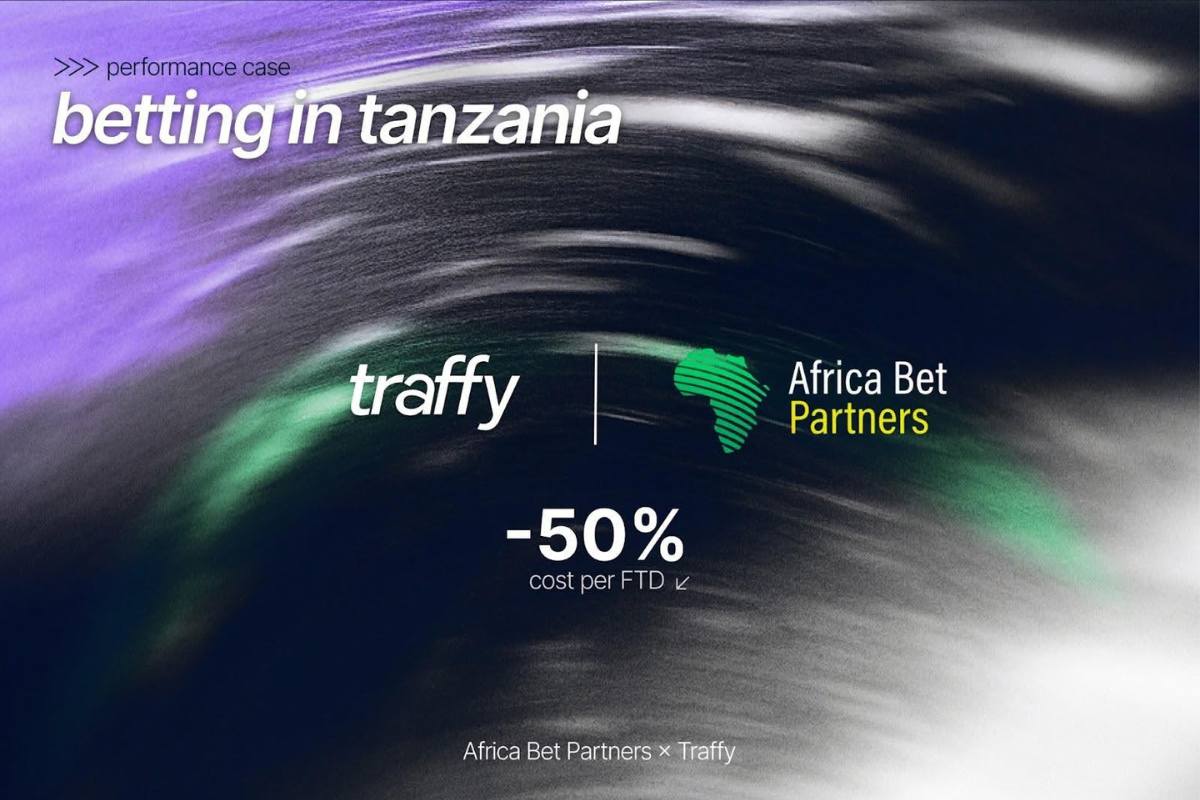
This case highlights the impact of systematic optimization in Moloco Ads for the Betting vertical. Despite market turbulence in East Africa, Traffy not only maintained Africa Bet’s KPIs but also significantly improved ROI through deep, data-driven optimization.
Project Overview
Africa Bet Partners Offer: Betting
Traffic Partner: Traffy
Source: Moloco Ads (Google Play Inventory)
Geo: Tanzania (TZ)
Period: 2 months
Total Spend: ~$42,000
Final CR (Reg-to-FTD): 60%
Final CR (FTD 1-to-FTD 2): 45%
Challenge and Initial Metrics
At the launch of the campaign, the situation was challenging. The complex economic and political environment in Tanzania had a direct impact on consumer purchasing power and the stability of payment systems.
Initial Cost per FTD: $15.00
Goal: Reduce the cost of the target action to below $8 and identify scaling potential.
Optimization Strategy: What Was Done
The success of this case is the result of Traffy’s consistent work across four key areas:
1. Traffic Quality Management (Exchanges & Publishers)
Traffy conducted a comprehensive audit of publishers (placements) through which Moloco acquired inventory.
- Blacklists were created based on low deposit conversion.
- Collaboration was optimized with specific ad exchanges that demonstrated stronger Retention.
2. Creative Strategy
Traffy moved away from standard approaches and implemented a system of regular testing of new creative packs. Creative optimization significantly increased CTR and IPM, providing the Moloco algorithm with more data for learning.
3. Traffic Cleanup to Avoid Paying for Bots
- Placements with suspicious install times (CTIT) were filtered out to protect against click flooding.
- Device “farms” were identified and banned through Device ID analysis.
- Using BI tools, installs were cross-checked with real user activity. Placements with no engagement were added to the Blacklist.
4. Funnel Optimization
Through targeting optimization at the campaign level, Traffy attracted more relevant users. This led to an increase in the CR from registration to FTD up to 60%, which is an abnormally high indicator for this region.
Key Insight
Deep publisher analytics in Moloco Ads combined with category segmentation allows reducing deposit cost by more than 2x while maintaining high player quality (Retention and repeat deposits).
Result
Traffy not only met Africa Bet’s KPIs but also built a stable model for further scaling. Even in “difficult” geos, a systematic optimization approach makes it possible to achieve outstanding results. At the moment, the campaign continues to run, and user Retention (FTD 2) shows organic growth.
The post How Traffy Cut FTD Cost in Half and Scaled Betting in Tanzania for Africa Bet Partners via Moloco Ads appeared first on Eastern European Gaming | Global iGaming & Tech Intelligence Hub.
Africa Bet Partners
How Traffy Cut FTD Cost in Half and Scaled Betting in Tanzania for Africa Bet Partners via Moloco Ads
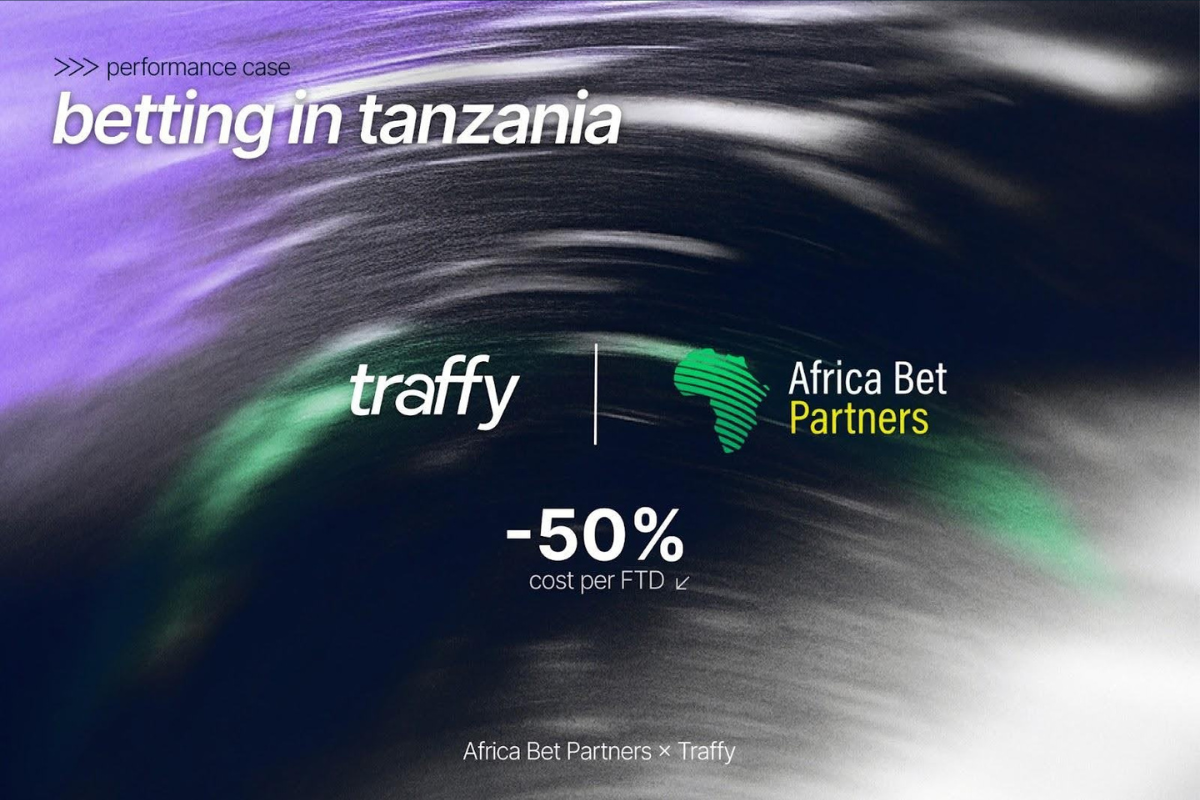
This case highlights the impact of systematic optimization in Moloco Ads for the Betting vertical. Despite market turbulence in East Africa, Traffy not only maintained Africa Bet’s KPIs but also significantly improved ROI through deep, data-driven optimization.
Project Overview
Africa Bet Partners Offer: Betting
Traffic Partner: Traffy
Source: Moloco Ads (Google Play Inventory)
Geo: Tanzania (TZ)
Period: 2 months
Total Spend: ~$42,000
Final CR (Reg-to-FTD): 60%
Final CR (FTD 1-to-FTD 2): 45%
Challenge and Initial Metrics
At the launch of the campaign, the situation was challenging. The complex economic and political environment in Tanzania had a direct impact on consumer purchasing power and the stability of payment systems.
Initial Cost per FTD: $15.00
Goal: Reduce the cost of the target action to below $8 and identify scaling potential.
Optimization Strategy: What Was Done
The success of this case is the result of Traffy’s consistent work across four key areas:
1. Traffic Quality Management (Exchanges & Publishers)
Traffy conducted a comprehensive audit of publishers (placements) through which Moloco acquired inventory.
- Blacklists were created based on low deposit conversion.
- Collaboration was optimized with specific ad exchanges that demonstrated stronger Retention.
2. Creative Strategy
Traffy moved away from standard approaches and implemented a system of regular testing of new creative packs. Creative optimization significantly increased CTR and IPM, providing the Moloco algorithm with more data for learning.
3. Traffic Cleanup to Avoid Paying for Bots
- Placements with suspicious install times (CTIT) were filtered out to protect against click flooding.
- Device “farms” were identified and banned through Device ID analysis.
- Using BI tools, installs were cross-checked with real user activity. Placements with no engagement were added to the Blacklist.
4. Funnel Optimization
Through targeting optimization at the campaign level, Traffy attracted more relevant users. This led to an increase in the CR from registration to FTD up to 60%, which is an abnormally high indicator for this region.
Key Insight
Deep publisher analytics in Moloco Ads combined with category segmentation allows reducing deposit cost by more than 2x while maintaining high player quality (Retention and repeat deposits).
Result
Traffy not only met Africa Bet’s KPIs but also built a stable model for further scaling. Even in “difficult” geos, a systematic optimization approach makes it possible to achieve outstanding results. At the moment, the campaign continues to run, and user Retention (FTD 2) shows organic growth.
The post How Traffy Cut FTD Cost in Half and Scaled Betting in Tanzania for Africa Bet Partners via Moloco Ads appeared first on Americas iGaming & Sports Betting News.
-

 Compliance Updates6 days ago
Compliance Updates6 days agoFinland Govt Looks at Whether Scratchcards can be Gifted Again
-

 Claire Osborne Managing Director of Interactive at Inspired Entertainment5 days ago
Claire Osborne Managing Director of Interactive at Inspired Entertainment5 days agoTwo new slots from Inspired — Coin Inferno Step ‘N’ Stack™ and Mummy It Up™
-

 Canada5 days ago
Canada5 days agoHigh Roller Technologies Signs Letter of Intent with Kindbridge Behavioral Health to Support Responsible Gambling in Ontario
-

 Latest News5 days ago
Latest News5 days agoACR POKER GIVES PLAYERS A SHOT TO QUALIFY ONLINE FOR $700,000 GTD ENJOY POKER SERIES MAIN EVENT THIS FEBRUARY IN URUGUAY
-

 Amusnet4 days ago
Amusnet4 days agoWeek 5/2026 slot games releases
-

 Compliance Updates6 days ago
Compliance Updates6 days agoVNLOK Report: Over 95% of Gambling Ads on Meta Platforms are from Illegal Providers
-

 David Nilsen Editor-in-Chief at Kongebonus6 days ago
David Nilsen Editor-in-Chief at Kongebonus6 days agoKongebonus Awards 2025 Winners Announced
-

 Compliance Updates4 days ago
Compliance Updates4 days agoNational Council on Problem Gambling Adopts 1-800-MY-RESET as New National Problem Gambling Helpline Number






